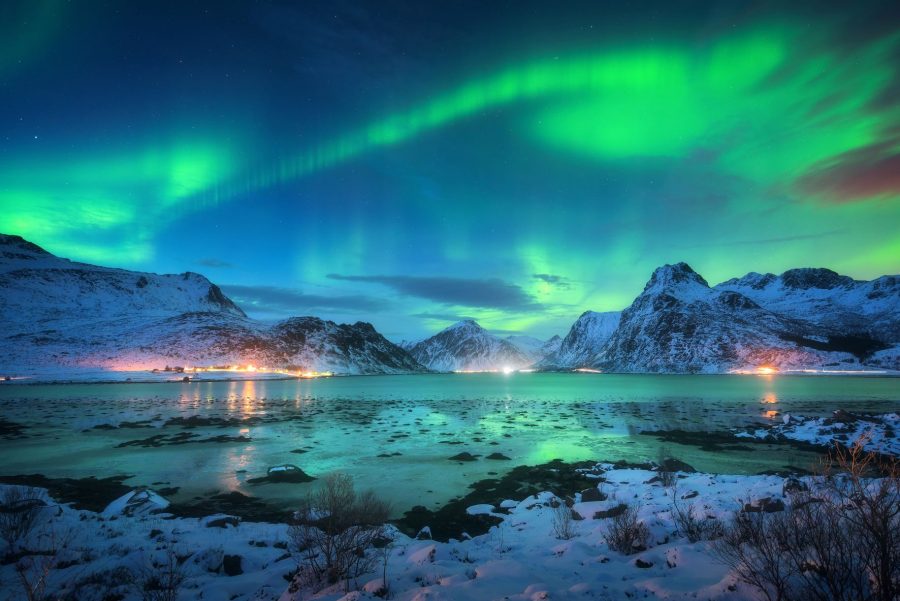Text: Vilhelmiina Vainikka and Monika Lüthje
The important issue of tourism ethics was addressed in four guest speaker presentations at ETRAC webinar on 28.3.2022. Each speaker brought to the table inspiring thoughts on how to perceive and understand ethics and how to practice ethical tourism in the Arctic and beyond. This text highlights some of the points raised and you are welcome to listen to the presentations on You Tube if you wish to learn more.
Professor Dieter Müller from Umeå University, Sweden gave a presentation on “Producing and consuming tourism in Arctic peripheries: Some thoughts on Contested Phenomenon”. He highlighted a dialogical approach to ethics. This means that there are no simple right or wrong things that would apply in all places, but that we need to be in dialogue with tourism communities about ethics. What is right or wrong has to be negotiated locally. He also asks to what extent should we see individuals or collectivities in relation to ethics? And who are the legitimate stakeholders to say what is right or wrong? Even, for example, demarcation of who is a Northern resident is a tricky issue in a hypermobile World. There are conflicts and dilemmas in tourism development which is a political phenomenon. We need to be prepared that there might be no clear answers as the outcome of the dialogue. See Dieter’s presentation here.
Senior lecturer Anna de Jong, from University of Glasgow, Scotland gave insight on justice in tourism development with her presentation “A Spatial Justice Framework for Tourism Research?”. She introduced a theoretically inclined framework for tourism research in order to evaluate spatial (in)justices in tourism development. She underlined that tourism is considered as a developmental tool in the UK and EU policies and economic support is directed particularly to peripheral areas that have challenges with e.g. lack of attractive employment opportunities and youth drain. Currently many tourism dominated places have been pressured by a trend from traditional tourism products into self-governed experiences and short term rentals in addition to lack of available land and housing issues. There is a tension between hypermobility and situatedness. Justice in tourism means that all locals benefit from tourism as equally as possible, and this should also be the aim of tourism policies. Sustainable tourism has been seen as the response. The framework stems from the lack of assessment on rural policies. The spatial justice framework considers political economy, feminist approach and spatial approach. See Anna’s presentation here.

Professor Guðrún Helgadóttir from University of South-Eastern Norway pondered “Ethics of Arctic Tourism and/or Ethics of Arctic Living?” in her presentation. She stated that tourism should not be considered too much as separate from life in general, that the idea of tourism taking place in liminal space governed by hedonic values is not the ethics leading to sustainable tourism. Ethics of Arctic tourism are ethics of arctic living as tourism impacts everything in communities. Residents become hosts regardless of whether they are tourism workers. Guðrún introduced some interesting findings from her previous studies from Iceland. In the Nordic countries there is considerable volunteer engagement that becomes a tourism resource such as the rescue squads. She discussed how locals display ethics of care towards tourists as fellow human beings, offering assistance, and stating concern for their safety or them being subjected to tourist traps. At the same time her respondents could take a critical stance towards the tourism industry and tourism management by local and national authorities. Such findings beg the question if tourism knows its place in the community? And does it build community and for whom? See Guðrún’s full presentation here.
Associate professor Bryan Grimwood from University of Waterloo, Canada focused his presentation on: “Taking Responsibility for Decolonizing Arctic Tourism”. His approach to ethics centers around who we are and how we ought to live, and therefore he sees ethics as a “process of becoming otherwise”. He reminded us that tourism is not free from colonializing projects and in order to proceed in ethical recovery in Arctic tourism decolonizing politics need to be applied. Bryan addressed different forms of colonialism, particularly settler colonialism and argued that the process of colonialism can be economic, political but also cultural. Settler colonialism tries to remove or destroy Indigenous peoples physically and symbolically and this takes place even today in the Arctic. Taking responsibility is a forward-looking approach rather than one based on blame and decolonization should be made by critiquing and building. This constructive side is especially relevant in ethical recovery. Bryan introduced learning from Elders, working with communities, “listening” to non-human teachers as constructive projects of decolonization. Listen to Bryan’s presentation here.
The next ETRAC webinar will be organized on 24.5. 15-17 CET via Zoom on “How to Sell Ethical Tourism?”. You are very welcome to participate. Check out latest information on ETRAC project here.
